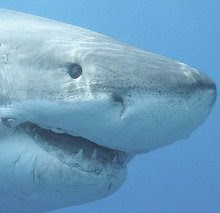Pre-authorized to fail - Not content to charge high prices for gasoline, someone (credit card issuers, gasoline distributors, or both) decided to reserve a chunk of your change before you pump a drop. If you pay at the pump, the minute you swipe your card you will be charged as much as $100 dollars. Ostensibly added in response to the rapid rise in gas prices, $100 must be someone's best guess about a maximum fill-up amount. However, they didn't consider massive SUVs, older Hummers, motorhomes, or the odd Bugati Veyron. In any event, this charge will be in addition to whatever amount of fuel you actually dispense, and it will remain on your credit balance sheet for up to two business days (possibly more). At some point the transaction is reconciled and the so-called pre-authorization charge is dropped, but until it is it can play havoc with your ability to use that card if you are near the credit limit. So - if you pay at the pump, be sure you have enough room on your card to absorb those unseen charges, and don't use your card for small fill-ups - use cash instead. How silly would it be to swipe a credit card for 2 gallons - say $6 worth, and have it cost you - if just temporarily, $106 ...
Failure of Authority - President Obama staged his open back-room meeting on Health Care Reform with the Republicans, hoping (we can assume) the public exposure of the GOP's foot-dragging and nay-saying ways on the issue would be apparent to voters. Unfortunately, he forgot a salient point, the non-persistent of public memory. At most the American voter will remember that John McCain thinks he's still campaigning and Barack Obama is handy with a comeback. The rest of the exercise just served to remind us how inadequately we are represented in Congress, by both parties, something no politician including the President wants. But we'll forget that reminder too.
Failure Not Authorized (Or Expected) - Remember way back at the end of the Bush presidency, when our government bailed out banks and brokerage firms with so-called Troubled Asset Relief Program (TARP) money? Sure you do. Do you also remember the restrictions on executive pay and bonuses the Obama administration affixed to those funds? Of course you do. Well, those funds were meant to stabilize banks and brokerages so they could continue to operate the nation's financial system - most importantly continue lending money to fuel our credit-driven economy. Sadly, the strings attached made those funds seem more toxic than the troubled assets, with the result the biggest institutions have already paid the money back to gain their freedom. In doing so they used the very funds they were supposed to pour back into the economy. As a result, the intention of TARP seems to have failed miserably. But, even the best laid plans gang aft agley. And, as my junior high science teacher liked to say, those plans were laid, "like my grandmother lays bricks", which is to say, not very well at all.






